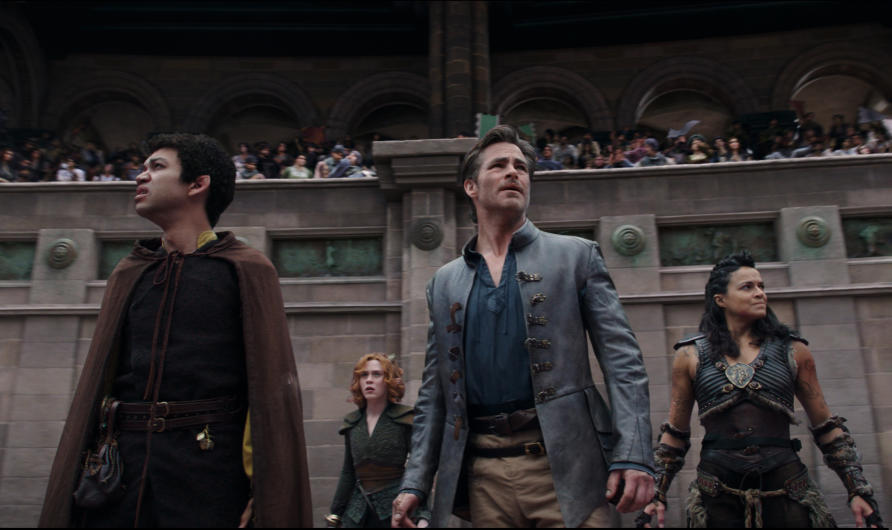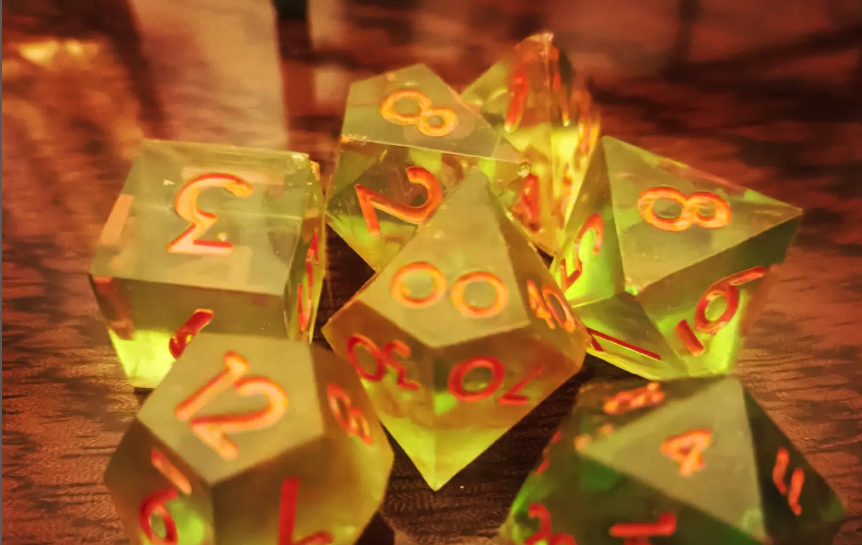A team of adventurers traverse a dungeon to defeat a mighty dragon and, through their victory, save the realm. Meanwhile, a design team skilfully adapts its product to evolving customer demands through a global pandemic – saving the business.
Both these scenarios require teamwork, flexibility and creativity. But, in real life, the stakes are much higher for the second team – because the first is playing Dungeons and Dragons.
(This article was first published on Pursuit. Read the original article.)
D&D’s life lessons
Dungeons and Dragons (D&D) – the decades-old, tabletop role-playing game – has seen growing interest recently, in part due to the popular Netflix series, Stranger Things, and the theatrical release of Dungeons & Dragons: Honor Among Thieves, among other pop culture references.
A game of D&D requires one player to fill the role of Dungeon Master (DM), setting the stage and controlling the monsters and other characters. The other players collaboratively roleplay their characters through adventures presented by the DM.
Random elements are introduced using dice of various weird and wonderful shapes, but players can level up and develop their characters over time to modify these dice rolls to their advantage.
Multi-session D&D adventures can result in campaigns that play out over weeks, months, years or even decades. If you’re keen, you can find ‘professional’ gameplay in Critical Role which airs a weekly three-to-four-hour D&D game session of a group of voice actor friends.
So why do I have to go and spoil a fun thing like D&D by bringing up work? Fair question. Rather than spoil D&D with work, though, let’s instead think about how D&D could facilitate our on-the-job adventures.
Levelling up with D&D
D&D is good for you, according to research noting its educational value.
A study of primary school children suggests that even when played using online tools during the recent pandemic, D&D helps to develop important life skills in language and communication, perspective-taking, self-awareness, empathy, creativity, critical thinking and problem solving.

Importantly, D&D offers similar benefits to adult learners who can develop their skills in teamwork and group creativity while adventuring.
Another study of D&D in a therapy setting suggests that it can boost a person’s confidence in social settings and reduce their fear of making mistakes, which then enhances their decision making.
With benefits like these, it’s only natural that some mental health professionals have made it part of their practice.
Skills that are enhanced and encouraged by D&D are also widely recognised as important by employers, government, and industry. On top of this, the World Economic Forum predicts that these dungeon-delving, dragon-slaying abilities will be among the top employment skills of the future.
And in case this is not enough evidence to convince your boss to incorporate D&D into your professional development (because that’s really why a lot of us are here), ask them to consider D&D’s lessons in work-relevant domains like teamwork, diversity and inclusion.
For Your Boss’s Consideration
In D&D, it’s vital that you understand the strengths and weaknesses of your character and your teammates’ characters.
If you’re the wily rogue, you need to pick the lock to sneak into the enemy’s hideout, but then you need to make way for the hardy fighter to hack away at any evil minions that emerge when the bad guys finally realise you’re there.
If you’re the fragile but clever wizard, you need to stay back and thin out the incoming enemy ranks from a safe distance with your magic missiles. If you’re the cleric, everyone counts on you for healing and – occasionally – calling forth the wrath of the gods to smite those hard-to-get creepy-crawlies.
Everyone plays a role. It’s impossible (and much less fun) to do everything by yourself. You need a diversity of tools, skills and experiences to succeed.
Each member is also only empowered when their teammates include them in the effort. Heroism in D&D comes with paying attention to your teammates, embracing who they are and giving them the opportunity to do what they do best.
Heroism is a gift that team members bestow upon one another.
Does this sound familiar? Ideally, this is a heroism that you see and feel in your workplace, but many, unfortunately, have experiences far removed from this ideal.
The Diversity Council Australia reports that nearly a quarter of Australian workers experienced discrimination and/or harassment at work within a twelve-month period. In other countries, like the US and the UK we see a similar picture.

The Next Level
So, it seems we need more understanding, more inclusion, and perhaps – given the game’s potential to promote inclusion – more D&D at work.
And why stop at inclusive team players? With experience, many D&D players come to realise that not all goblins are evil, many dragons want to protect the realm and some dungeons can offer safe sanctuary from a cruel world.
Perhaps a D&D-inspired mindset can similarly change how we think about our professional relationships, stakeholders and work environments.
So, what elements of D&D’s teamwork and heroism can you bring to your workplace?